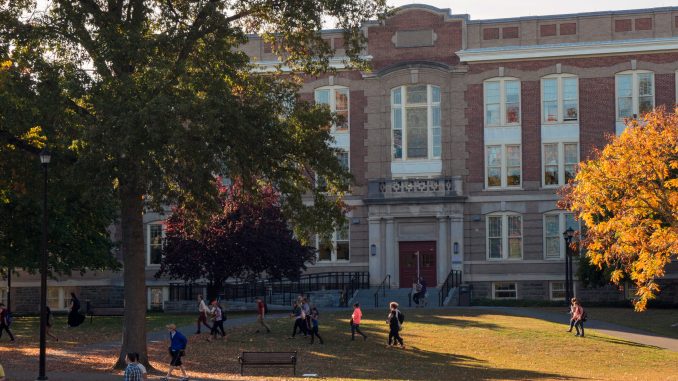
SUNY students interested in taking graduate-level, masters or advanced certificate programs in teaching and educational administration are no longer required to take the Graduate Record Examinations (GRE). In December 2021, Governor Kathy Hochul revised SUNY’s admission requirements, eliminating the GRE from the list. Gov. Hochul expressed the belief that this action will help more New Yorkers have equitable access to these careers in colleges.
Ridding the SUNY system of the GRE is all part of Gov. Hochul’s plan to revitalize the SUNY school system and secure its place as a global leader in higher education. Other goals of hers were to increase enrollment by one third in reflection with the state’s diversity, making total enrollment over 500,000 students, providing affordable degrees and credentials to all kinds of students, supporting top faculty and staff, doubling sponsored research, start-ups and patents so SUNY can catalyze economic innovation and create good jobs all across the state.
“My family’s life was changed because my father was able to afford a college education. New York must have a statewide world-class public university system that can change lives for the next generation of students,” Gov. Hochul said in a statement on the government of New York State’s website. “We must seize this moment to revitalize SUNY, lifting up students from a broad and diverse range of backgrounds while at the same time transforming the institution into a global, 21st century educational leader.”
Previously, students interested in graduate or masters-level educational programs had to pass the GRE for entry. The GRE test measures verbal reasoning, quantitative reasoning, critical thinking and analytical writing skills. Essentially, the GRE for potential graduate students is similar to the SAT or ACT for undergraduate students — a good score on the test will set you apart from other applicants.
For many, the GRE is exceptionally harder than either the SAT or ACT. Reasons for this are because of the difficult vocabulary, time factor, challenging wording, two essays and the critical thinking aspect. Students were graded with three different scores: analytical writing, verbal reasoning and quantitative reasoning.
The time and effort demanded by the GRE for those who wanted a good score created issues for many students. Often, students would spend countless hours studying, and many were told to find a tutor outside of their individual efforts — adding an extra financial burden.
In fact, the legitimacy of the GRE has been called into question for years with many arguing it is racially, gender and socioeconomically biased, favoring rich white men.
“Much research suggests that the GRE is a racially and class biased exam that works to center White, middle-classed ways of knowing the world,” said René Antrop-González, dean of the School of Education at SUNY New Paltz on the school’s website. “Hence, the GRE actively works to keep BIPOC people out of the education-related professions.”
In fact, much research has been done to support the biased nature of the exam.
An article in the Atlantic from 2016, the University of Missouri observed the GRE scores of first-year graduate school GPAs of 160 minority students — all students had earned graduate degrees from “distinguished universities” focused on research. The average GPA of the students was a 3.51 and all students finished their programs. According to researchers:
“In observing the range of GRE scores of these graduate students, it becomes clear that according to some graduate-school admissions policies, some students should not have been admitted to graduate study, let alone actually graduate. This strongly suggests the necessity of focusing on other factors besides the usual criteria and to look beyond the talented top 20% of applicants.”
By only taking interest in the top 20% or so of applicants, schools neglected many of the lower socioeconomic classes. The test itself costs $205 to take in the U.S., which could be a financial burden to students in the lower socioeconomic groups. Furthermore, students who struggle to pay for the exam do not have equal access to private tutors the way richer students do. This reflects in the research conducted on the subject — those with access to private, customized tutoring sessions most often perform better than those who do not have that access.
“For our students, Governor Hochul continues to mitigate barriers to a college education through expanded investments in our Educational Opportunity Program, child care programs, TAP for part-time students, and other financial aid and resources to ensure their success,” says a statement by SUNY interim Chancellor Debroah F. Stanley on Gov. Hochul’s executive budget plan found on the State University of New York’s website.

